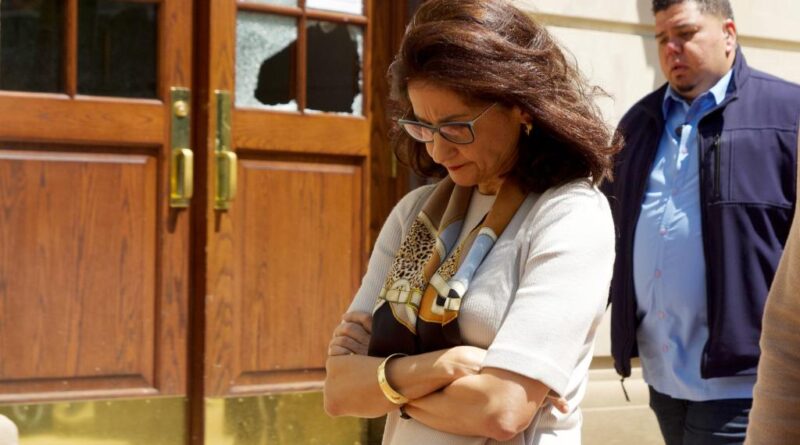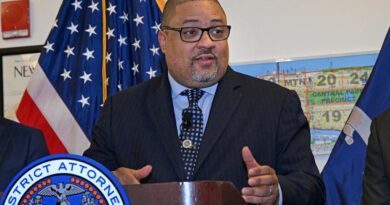College leaders including Columbia’s Minouche Shafik need to prioritize their main goal: education

Columbia University President Minouche Shafik suggests that university leaders nationwide need to engage in some introspection.
This is sound advice. She should begin with examining her own beliefs and motivations.
Shafik seems to have a misguided understanding of the purpose of a university.
She, along with other college presidents who share her views, are transforming esteemed universities into facilities that produce social activists skilled at silencing opposing voices, confronting law enforcement, and damaging property – all while gaining minimal knowledge and critical thinking skills during their college years.
Harvard, Yale, and the University of Pennsylvania are in search of new presidents. Cornell recently joined this quest as President Martha E. Pollack stepped down last week.
These university search committees should not only focus on finding replacements for the departing presidents but also on restoring universities to their core mission: educating students and generating innovative research.
Shafik appears to be confused about the core mission of academia.
In a recent column in the Financial Times, she inadvertently revealed why she is struggling at Columbia: She stated that a university’s mission consists of education, research, public engagement, and service.
However, this perspective is incorrect. Only education and research align with the fundamental mission of a university. Public engagement and taking official stances on current issues, such as conflicts or accords, can lead students and faculty to believe that there is only one correct viewpoint.
Community service is also not within a university’s primary mission.
Despite this, universities like Columbia offer students incentives for participating in left-leaning causes and enrolling in courses related to “social justice.”
For example, Smith offers a Community Engagement and Social Change Concentration.
These courses are essentially biased, providing a platform for leftist faculty to propagate their own beliefs rather than prioritizing education.
The lack of education plays a role in the chaos at Columbia and other institutions regarding conflicts like the one involving Israel.
Many campus protesters shouting slogans like “From the River to the Sea” lack knowledge of the geography they are referring to. Similarly, those accusing others of “genocide” often overlook historical contexts such as civilian casualties in various other conflicts.
Teachers must share these factual insights, and the failure to do so can be attributed to the deficiencies in the education provided.
Unfortunately, Shafik responded to these protests more as a political figure than an academic leader.
She yielded to the agitators, allowing anti-Semitic and anti-American sentiments to triumph by suspending activities at Columbia and canceling the main graduation ceremony.
Other universities went even further, with institutions like Brown, Northwestern, and Johns Hopkins considering divesting from Israel due to protester demands.
On the contrary, when the University of Chicago faced demands from protesters regarding Palestine-Israel issues, President Paul Alivisatos rejected the calls, emphasizing that institutional neutrality must not be jeopardized.
He asserted that universities should focus on searching for truth rather than imposing ideologies.
Once a university picks sides, it loses its essence and no longer operates as an educational institution.
Search committees should take this perspective into account when seeking new leadership. They should look for candidates committed to making universities centers of learning and research, not hubs for community activism.
When the University of Pennsylvania underwent a leadership change last December due to President Liz Magill’s resignation, a notable faction of the faculty stood up against prevailing trends, advocating for a new university constitution that prioritized principles like institutional neutrality and open dialogue.
The document warns against institutions intertwining research and teaching with social and political agendas, as this discourages exploration of diverse perspectives and innovative thinking.
Stanley Goldfarb, a former associate dean at Penn’s medical school, emphasized the importance of educating students on Western history rather than restricting their views based on current social ideologies.
This narrow perspective often contributes to an upsurge in antisemitism on campus by demonizing certain groups as oppressive.
The proposed constitution’s bold vision, emphasizing education and the promotion of diverse viewpoints, should guide the leadership selection process at Penn and other universities.
American colleges and universities have earned international acclaim, but this reputation will diminish if they operate primarily as centers for indoctrination, producing activists rather than critical thinkers.
Donors, parents, and taxpayers should be vocal in restoring the true essence of higher education.
Betsy McCaughey, a former lieutenant governor of New York, urges institutions to prioritize education and research over activism in academia.



